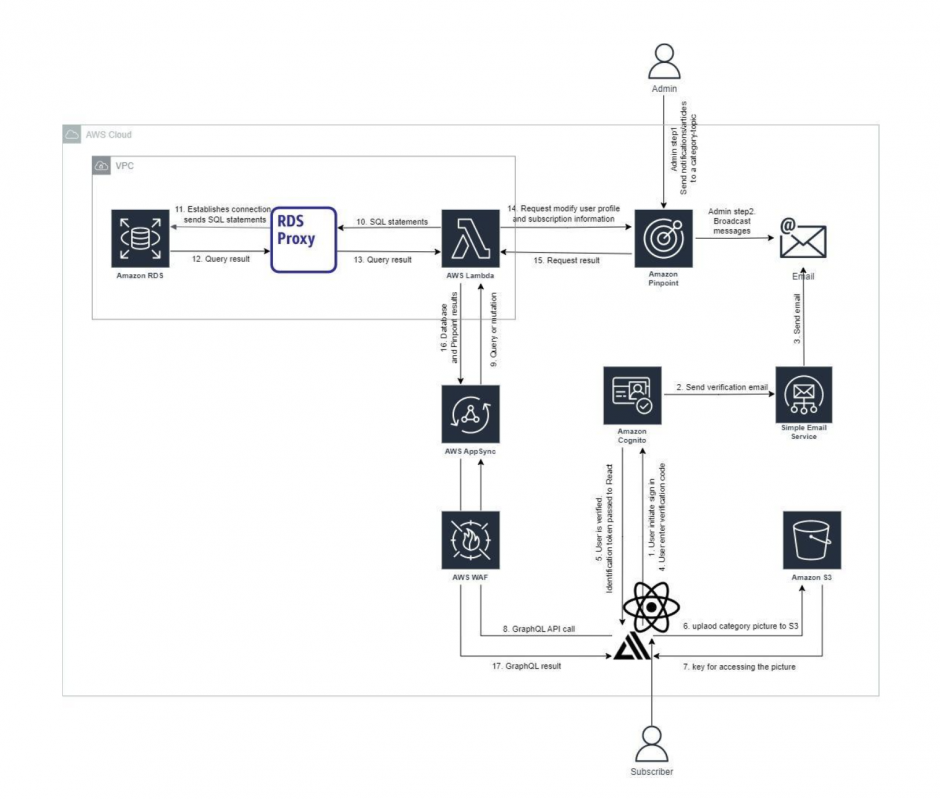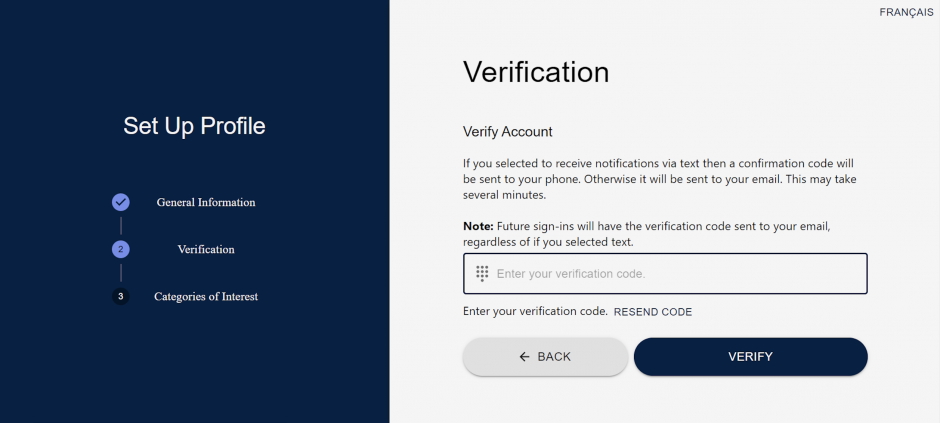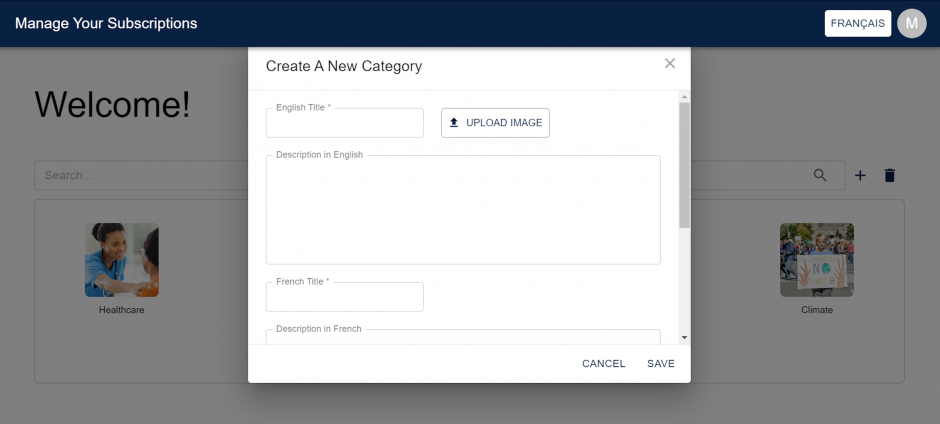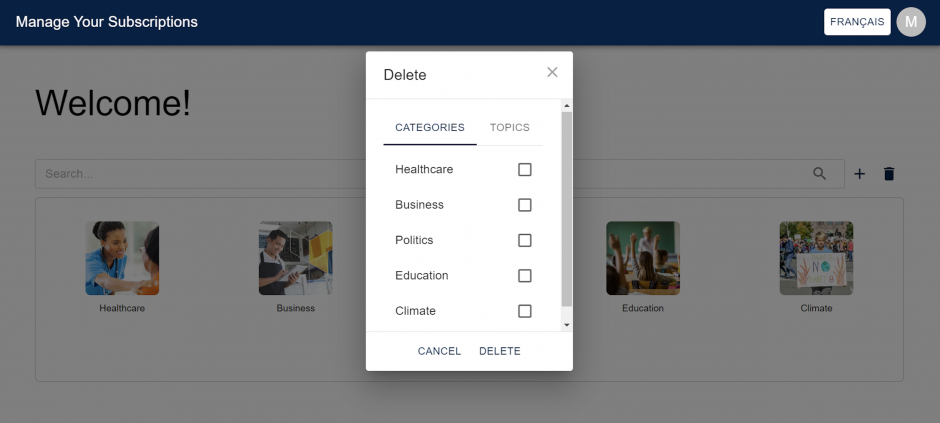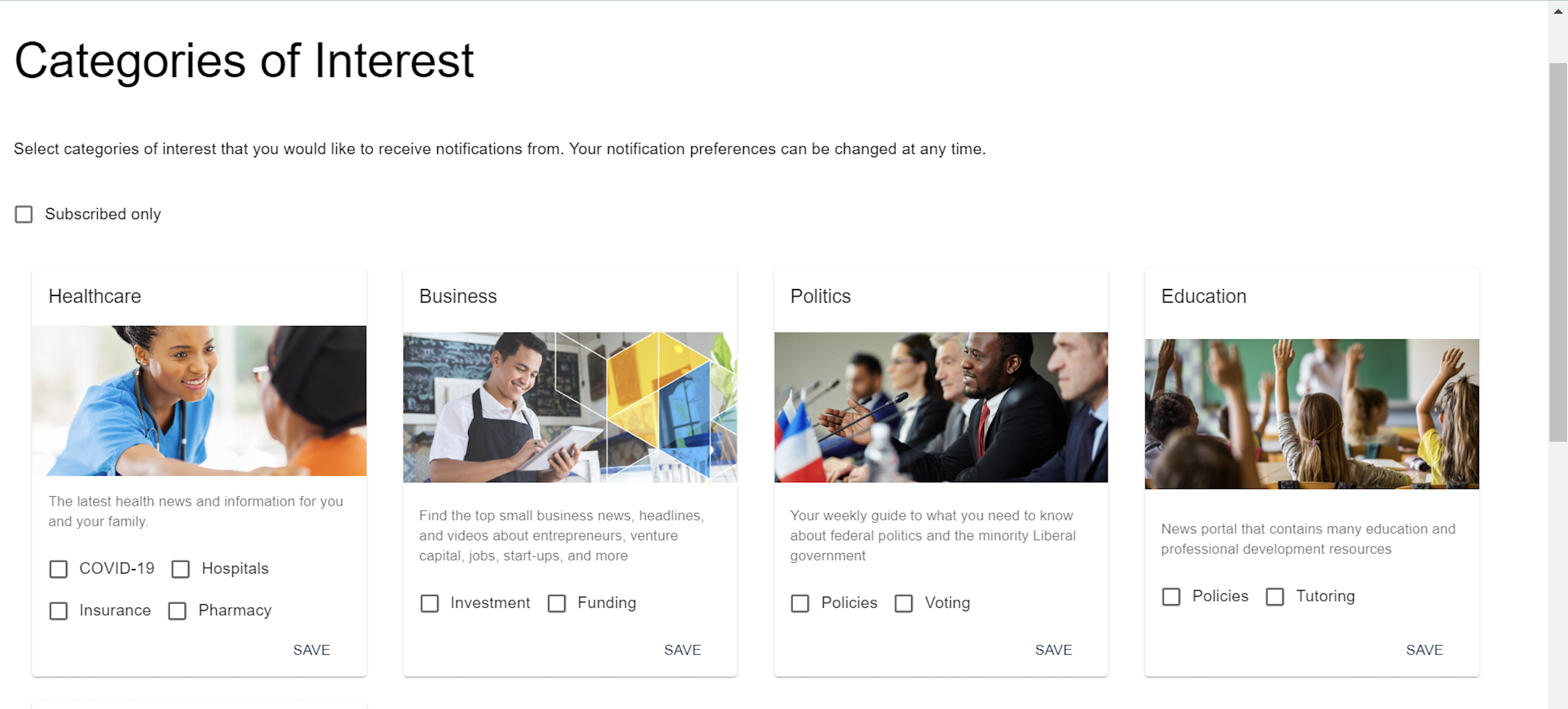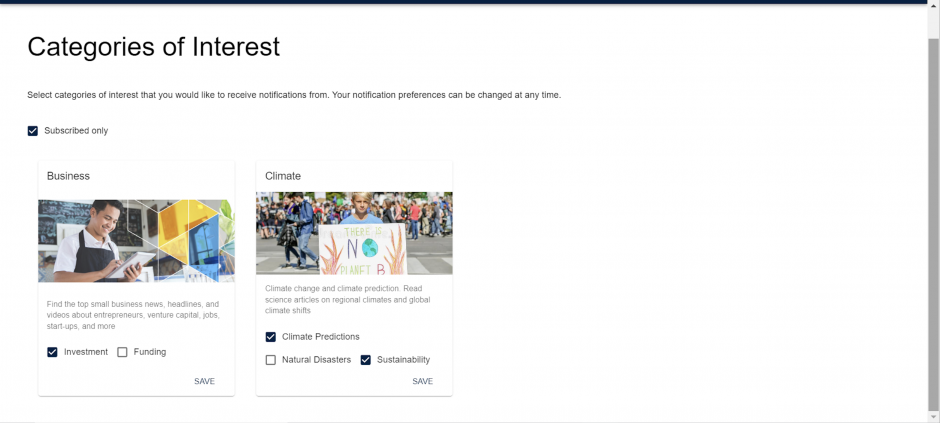Multi-Category Communications Manager: Uniting Federal Communications
Innovation, Science and Economic Development Canada (ISED), a Canadian federal government department, collaborated with the UBC Cloud Innovation Centre (CIC) to develop a solution that unites government communications into one centralised platform where users can subscribe to topics of interest and receive related newsletters and communications. This platform makes it easy for users to receive all relevant communications regarding their interests while also simplifying the internal content distribution process for government agencies.
Today, users who want to access communications from government agencies and departments have to navigate multiple websites and accounts, as well as search for the right point of contact in case of further questions. The process is time and resource consuming. Users are in need of a more streamlined way to interact with all the federal programs and agencies they are interested in understanding.
Approach
In collaboration with ISED, UBC CIC developed a solution that provides Canadians with one central platform to manage their subscriptions of programs and newsletters to stay informed about topics relevant to their specific needs and interests. The platform has bilingual capabilities, in which users can choose between English and French as the preferred language of communication. Users will be able to create a profile and report topics of interest based on segment and geographic location, enabling various ISED sectors to send notifications to users in the future when the information matches the user profile selections. The solution allows users to easily manage communications including opt-outs and media types (email or SMS). The solution utilises passwordless authentication; instead, when the user visits the platform, they receive a verification code to access their profile.
ISED internal customers (sector who distribute content to users) can now utilise a solution that has a centralised email list based on metainformation that replaces individual email lists managed by each sector.
Supporting Artifacts
Architecture Diagram
User Interface
Profile Setup
ISED Admin User Interface
Category and Topic Manage Function
Subscriber User Interface
The User Home Page of the MCM Platform
Technical Details
Both ISED administrators and external users are able to sign in to the web portal with their email account. Using AWS Simple Email Service (SES), users will receive a verification code which they can enter into the web portal to be authenticated by Cognito.
Depending on the type of user that was just authenticated (admin or external), The application will render the pages they are allowed to access. Admins will only be able to access the admin portal, where they can edit categories and topics, while external users will only be able to access the subscriber portal, where they can edit their user profile data and subscription preferences.
Once signed in, users can subscribe to specific categories and topics through the web interface, which sends GraphQL requests to AppSync. The AppSync API translates these requests into SQL statements to be executed by a Lambda Function. The SQL statements are then passed to an Aurora MySQL database which stores information on user profile and models relationships between categories, users and topics to create, read, update, and delete data entries. If the database operation was successful, the Lambda Function imports the user’s subscription information to AWS Pinpoint.
Similar to the user architecture, ISED admins can create and add to existing categories and topics in the web interface using AWS Appsync to edit the entries in the database through a Lambda Function and RDS Proxy. Admins can provide information on the categories and topics in French and English; and the database has the capability to extend to additional languages in the future. From then, ISED admins can log in to AWS Pinpoint console and broadcast notifications targeting users filtered by pre-defined criteria. Pinpoint will use this filter to send emails to specific user segments that meet the criteria.
Link to solution on Github: https://github.com/UBC-CIC/multichannel-communications-manager
Acknowledgements
Innovation, Science, and Economic Development Canada
Photo by Maxim Ilyahov on Unsplash
About the University of British Columbia Cloud Innovation Centre (UBC CIC)
The UBC CIC is a public-private collaboration between UBC and Amazon Web Services (AWS). A CIC identifies digital transformation challenges, the problems or opportunities that matter to the community, and provides subject matter expertise and CIC leadership.
Using Amazon’s innovation methodology, dedicated UBC and AWS CIC staff work with students, staff and faculty, as well as community, government or not-for-profit organizations to define challenges, to engage with subject matter experts, to identify a solution, and to build a Proof of Concept (PoC). Through co-op and work-integrated learning, students also have an opportunity to learn new skills which they will later be able to apply in the workforce.


